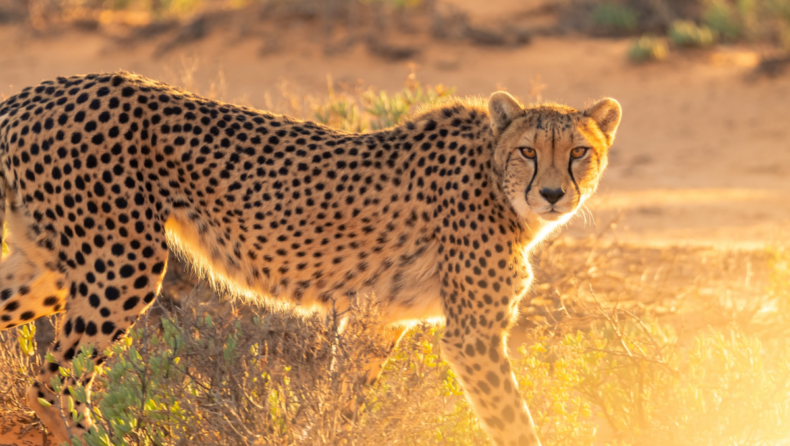African cheetahs to be introduced into Kuno-Palpur National Park in Madhya Pradesh from Namibia In India, cheetahs were declared extinct in 1952.
Eight African Cheetahs from Namibia will be transported by helicopter to Madhya Pradesh’s Kuno-Palpur National Park on September 17 in the morning as part of the Cheetah reintroduction program, according to principal chief conservator of forest J S Chauhan as quoted by the news agency PTI.

In an event on the following day, Prime Minister Narendra Modi will release them into quarantine facilities.
Six small quarantine enclosures have been constructed as it is mandated by law when transporting animals from one continent to another. The cheetahs need to spend a month in quarantine both before and after moving from one continent to another, according to Chauhan.
The center has not yet disclosed the age of the cheetahs that will be sent to Madhya Pradesh since talks with Namibian authorities are still ongoing.
In July this year, a Memorandum of Understanding (MoU) on animal conservation and sustainable biodiversity utilization for the restoration of cheetahs into the historical range in India was signed by Indian and Namibian authorities.
The main focus areas of the MoU are biodiversity conservation, with a particular emphasis on the preservation and reintroduction of cheetahs in the regions where they once roamed before going extinct.
Status Of Cheetahs
In 1947, the last cheetah in the country died in an area of what is now Chhattisgarh, previously a part of Madhya Pradesh. In India, cheetahs were declared extinct in 1952.
The disappearance of cheetahs in India has been attributed to a number of factors, including hunting, declining habitat, a lack of sufficient prey, such as black buck, gazelle, and the hare, and the expansion of human settlements.
As per the International Union for Conservation of Nature (IUCN) estimation, less than 7,000 wild cheetahs are believed to still exist in the world. The IUCN status for the Asiatic cheetah is Critically Endangered, while African cheetahs are presently in a vulnerable state.

“Presently, Asiatic cheetahs are facing the risk of extinction and can only be found in Iran”
Action Plan for the Introduction of Cheetah
The “Action Plan for the Introduction of Cheetah in India” was unveiled by the Union Minister for Environment, Forests, and Climate Change. It aims to reintroduce 50 cheetahs over the course of the next five years.
Introducing the cheetah is not just a plan to help the species recover; it is also an effort to help ecosystems recover a lost component that was crucial to their evolution.
The cheetah has a particularly significant significance for the national conservation ethic and ethos, as per the Ministry of the Environment.
The conservation implications of bringing the cheetah back to India are equally significant.
The Supreme Court approved the Union government’s request to import the African cheetah to India in January 2020, despite the fact that the “African Cheetah Introduction Project in India” was first proposed in 2009.
It received a setback due to the COVID-19 pandemic, but the signing of the MoU between India and Namibia has restarted the project with new vigor.
With the reintroduction of eight African cheetahs from Namibia into Kuno-Palpur National Park, India is one step closer to bringing back the world’s fastest animal, which has been extinct in the country since 1952.
Read More–Dalit girl set on fire after crime rapes 2 in Uttar Pradesh













